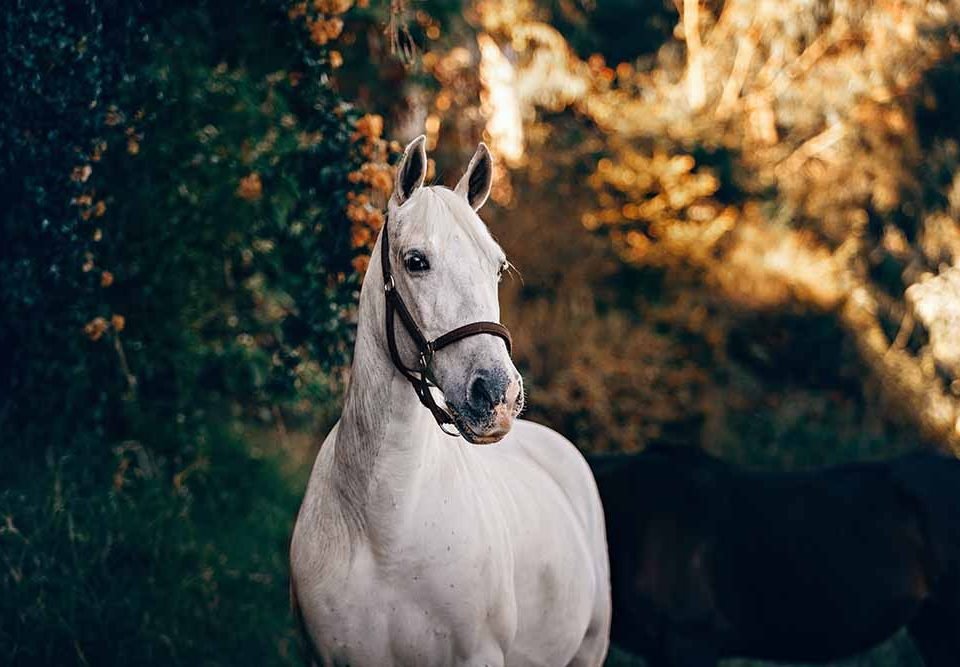Like humans, horses experience anxiety and stress during various situations like travels, competitions, strolls, or adapting to a new environment. They may express their anxiety by pacing continually, bolting, sweating, teeth grinding, weight loss, or having diarrhea.
All of which can slow down the owner or rider’s goals for the animal. This article digs deeper into horse anxiety, its types, symptoms, and how you can help your horse feel more at ease or self-assured.
Table of Contents
Understanding Horse Anxiety Issues
Horses are herd animals and herbivores and are oftentimes prey in the wild. Therefore, they are naturally inclined to flee rather than fight in the presence of perceived danger. To comprehend anxiety in horses, have an understanding of their mindset. What may cause distress in a horse like the last triple crown winner may differ significantly from what may trouble you or your other domestic animals.
Causes of Anxiety in Horses
When their living conditions fail to align with their natural instincts, anxiety is common among horses. Here are the common causes of anxiety in horses:
Separation anxiety
It occurs when a horse is removed from its herd. Horses tend to become agitated, try to escape, and return to their initial pasture when they are taken away from herd mates and kept in stables.
Performance anxiety
It occurs when horses encounter certain sounds or sights before or during a competition. Occasionally, horses may pick up on their rider’s anxious behaviors.
Situational anxiety
It arises when a horse associates a particular situation with something terrible happening. For instance, a horse may always associate trailers with accidents because it has been in a trailer accident.
Chance anxiety
It occurs when a horse’s living conditions are abruptly altered, such as unexpected changes to their training schedules or a different rider.
Symptoms of Anxiety in Horses
Here are some of the common symptoms anxiety induces in horses:
Weaving and stall walking
Once you notice a horse exhibiting weaving and stall walking behavior, such as placing from side to side, circling, or swaying, they are bored. Boredom induces these symptoms, which results in tendon and ligament strains in the animal.
Fear
Horses exhibit fear by trembling, shaking, standing still, or trolling eyes while being ridden or attended to. Jn extreme cases, there may be visible skin twitching or frequent tense posture.
Spooking and bolting
Horses become startled and veer away or run off from the source of their fear while being ridden or led. Sometimes when horses feel scared, they attempt to escape the situation as quickly as possible. For example, if confined to a stall, they may back themselves into a corner.
What to do with an Anxious Horse?
Here are several steps you can take independently or with the guidance of a qualified trainer to resolve your horse’s anxiety:
- Have your veterinarian assess your horse to rule out any underlying physical ailments contributing to their behavior.
- After confirming that your horse is in good health, it is time to help them build confidence and feel more secure. Spend time at the barn getting to know them and helping them become familiar with you.
- Take the time to groom your horse, hand grazes them, and interact with them in low-stress situations that do not trigger their anxiety.
Other Tips to Resolve your Horse’s Anxiety
If your horse’s anxiety persists, use precise aids when riding. It reduces tension in the horse and improves communication between rider and animal. Ensure your tack fits properly and is not causing pain or discomfort for your horse. Also, confirm that your saddle fits or, better still, purchase a proper tack fit with an accurately sized bit and girth. Moreover, horse fencing is essential for providing a secure, predictable, and stimulating environment, which is crucial for reducing anxiety in horses.
Finally, work with an affordable qualified trainer who can help improve your riding and communication with your horse. For example, a trainer can identify subtle nonverbal cues that may be causing anxiety in your horse and work with you to improve your posture, breathing, and riding skills.










